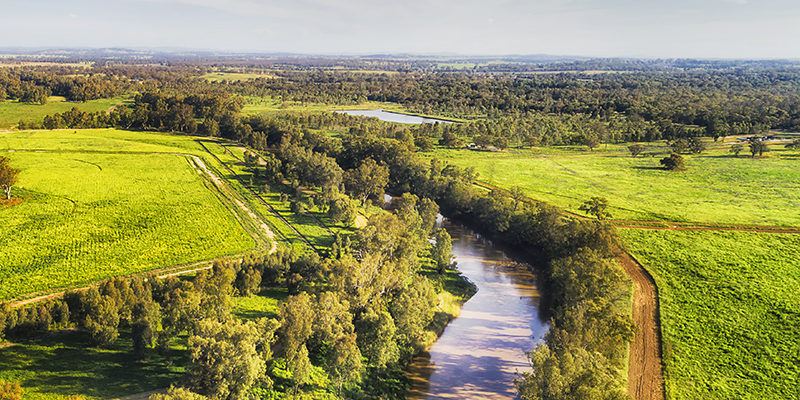A clear path to water meter compliance
New South Wales is on the road to a faster and easier roll out of non-urban metering reforms thanks to a suite of recommendations that lay out clear and practical steps to boost compliance rates and ensure water extraction is being measured and managed fairly across the state.
Last year, the NSW Government conducted a comprehensive review of the current program, identifying several roadblocks to compliance. These included a statewide shortage of qualified personnel to install meters, inconsistent or inflexible metering rules, challenges with emerging technologies, and high costs for smaller users.
Forging forward with a ‘no meter, no pump’ approach, the metering roll-out had the handbrake on and was unlikely to achieve comprehensive coverage until at least 2040, which is unacceptable.
The following key recommendations will be prioritised over the next 12 months:
- Focusing resources where they are needed most, particularly on larger, high-risk water users first
- Expanding the workforce of people who can install tamper-evident meters by increasing the ways people can become certified, providing better training and broadening the definition of duly qualified persons (DQPs)
- Increasing direct support to DQPs in the field and improving the systems they use
- Making it cheaper, easier and faster for smaller and low-risk users to comply with the rules while mandating recording and reporting of licensed water take
- Strengthening the Natural Resources Access Regulator’s ability to enforce the law by removing barriers to compliance
- Extending compliance deadlines for larger coastal water users from 1 December 2024 to 1 December 2026
- These recommendations are intended to put the state on track to have 95 per cent of all licensed water take metered by the end of 2026 - around a decade sooner than projected - and help the NSW Government make faster progress towards its Murray Darling Basin Compliance Compact commitments.
Extensive community consultation was carried out from 30 October to 26 November 2023 including 29 public submissions, 124 survey responses and discussions at three public online information sessions, ensuring a wide range of opinions and voices were captured.
Minister for Water Rose Jackson, said:
“Counting every drop of water has never been more critical as we head into a future with less predictable rainfall and climate extremes which is why transparency and accountability are the bedrock of our approach. We all have a right to know that water is being taken lawfully.
“Three months after the election last year, I launched a complete 360 review of the non-urban metering program because it was clear to me that it just wasn’t working and that compliance rates were not where they should be.
“The previous system was failing and I intervened to initiate the review to get us back on a path to comprehensive metering coverage in a much shorter period of time.
“The good news is these recommendations now provide a clear way forward to better support our water users by providing decisive steps to speed up compliance rates including better targeting our resources, boosting the metering workforce, and strengthening enforcement to ensure everyone is doing the right thing.
“The reality is that a relatively small proportion of larger water users account for the majority of licensed water take in NSW so it makes sense to concentrate our efforts on this cohort which will give us far better outcomes when it comes to looking after our most precious resource.
“The alternative was to sit on our hands and wait, which we estimate would have taken another 15 years or longer. Fair and sustainable water use is too important to be moving at a snail’s pace with these metering reforms. We all need to be on the same page as soon as possible and that’s what these changes will deliver.”
